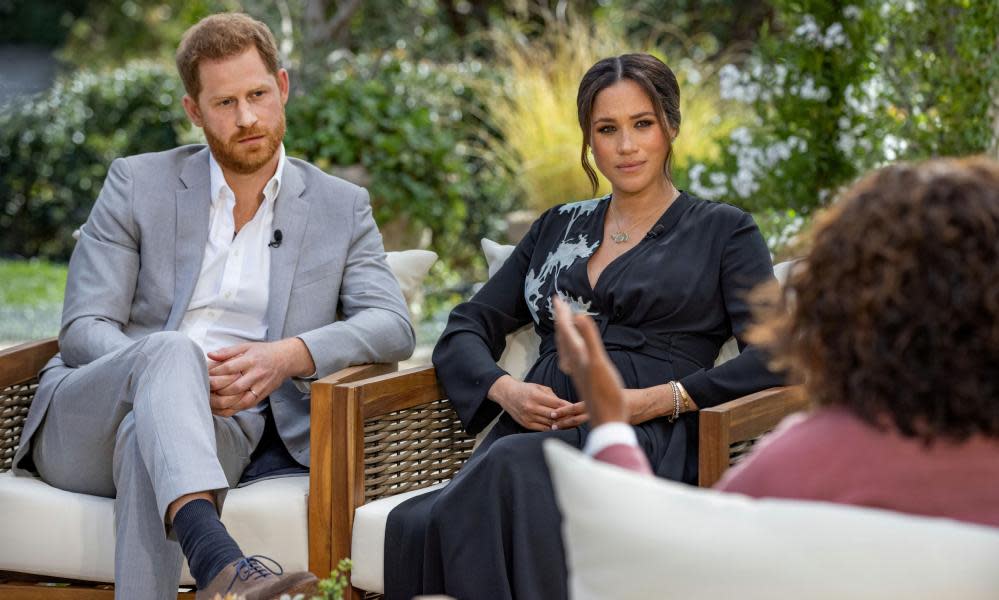Was Meghan's son Archie denied the title 'prince' because he's mixed race?

The Duchess of Sussex suggested her son Archie was denied his birthright of the title of prince by the palace and that the decision went against protocol.
She spoke of her shock at being told he would not get police protection because he did not have a title, and suggested that the decision was taken because of his mixed race.
Related: Meghan and Harry: 12 things we learned from the Oprah special
She was clearly upset at the “idea of the first member of colour in this family not being titled in the same way that other grandchildren would be”.
“It’s not their right to take away,” she told Oprah Winfrey.
She was asked by Winfrey: “Do you think it’s because of his race?”
Meghan replied: “In those months when I was pregnant, all around this same time, so we [had] the conversation of he won’t be given security, he’s not going to be given a title.
“And, also, concerns and conversations about how dark his skin might be when he’s born.”
Under protocols established by George V in letters patent more than 100 years ago in 1917, the children and grandchildren of a sovereign have the automatic right to the title HRH and prince or princess.
At the time Archie was born, he was the great-grandchild of a sovereign, not a grandchild.
George V’s declaration sets out: “The grandchildren of the sons of any such sovereign in the direct male line (save only the eldest living son of the eldest son of the Prince of Wales) shall have and enjoy in all occasions the style and title enjoyed by the children of dukes of this realm.”
As such, Archie will be entitled to the titles when Prince Charles accedes the throne.
George V’s declaration means that only Prince George, as a great-grandson of the monarch down the direct line of succession to the throne, was originally entitled to be a prince, as he is the eldest son of the eldest son of the Prince of Wales.
The Queen did step in ahead of George’s birth to issue letters patent to ensure the Duke and Duchess of Cambridge’s children would have the titles of prince and princess.
But they are children of the future monarch, whereas Archie is not. His father, Harry, is sixth in line to the throne, and will move down the line of succession if William and Kate have more children, and as George, Charlotte and Louis have children of their own.
At the time of Archie’s birth, it was reported the couple had decided he should be plain Master Archie Mountbatten-Windsor – the surname adopted by the royal family reflecting Prince Philip’s family name, and the Windsor name adopted by George V.
It was suggested this was because the couple wanted him to be seen as normal, without the burden of being a prince.
But Meghan made clear this was not the case. “It was not our decision to make,” she said.
Asked if Archie being a prince was important to her, she replied: “If it meant he was going to be safe, then of course.”
She added: “All the grandeur surrounding this stuff is an attachment I don’t have. I’ve been a waitress, an actress, a princess, a duchess. I’m clear on who I am, independent of that stuff. The most important title I will ever have is ‘Mom’.”
Extended members of the royal family also do not have automatic right to police security, which is a matter the royal family never discusses. It is a decision made with the family, Home Office and Metropolitan police. Princess Eugenie and Princess Beatrice no longer have security paid for by the taxpayer.

 Yahoo News
Yahoo News 
